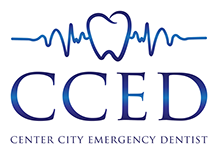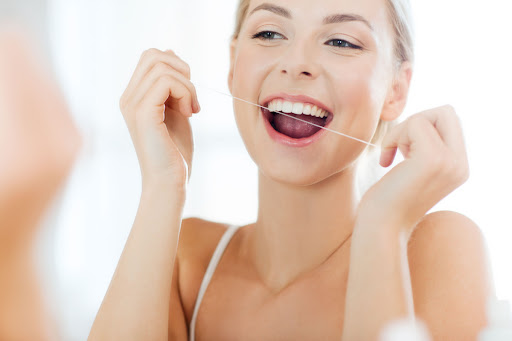Brushing your teeth is about more than just maintaining a bright and shiny smile — it’s an important part of preventative care for your mouth and, by extension, your overall health. Any built-up plaque can lead to gum diseases and infections. If you want to keep your teeth, gums, and tongue healthy, here’s a look at eight oral hygiene instruction steps.
Find the Right Brush and Toothpaste
While there are many different toothpaste brands and flavor options out there to choose from, you should always make sure it has fluoride. Using fluoride toothpaste while brushing creates a shield on teeth while also attacking the germs that can cause tooth decay — in other words, fluoride is preventive and proactive!
In addition to buying the right toothpaste, having a good brush is also important. Hard bristles can potentially damage the enamel of your teeth, so it’s a better idea to use a soft-bristled toothbrush.
Regular Brushing
An integral part of dental hygiene instruction is always brushing your teeth at least twice a day — once in the morning and again in the evening. Brushing before bed is especially important, as it eliminates all the germs and food particles that build up in your mouth during the day.
Brush Correctly
No matter how regularly you brush, it won’t accomplish much if you do a bad job. That’s why it’s essential to always take your time when brushing — around two minutes or more. Use gentle, up and down, or circular motions to reach every tooth surface. Additionally, consider brushing at a 45-degree angle toward your gums to wipe away bacteria and plaque.
Tongue Brushing
While many know that cleaning their teeth is a key component of oral hygiene, brushing the tongue also holds many benefits. The bacteria and plaque that congregate on the tongue are a source of bad mouth odors and lead to oral health issues. Therefore, it’s a good idea to gently brush away the bacteria on your tongue with a toothbrush.
Daily Flossing
It’s also recommended that you floss once daily to remove the food particles stuck in the spaces you can’t reach when brushing. However, flossing can accomplish more for dental hygiene than dislodging small bits of food. Dental floss can loosen up plaque to make brushing more effective, as well as stimulate the gums.
Use Mouthwash
Another oral hygiene instruction more people should follow is using an antibacterial mouthwash. As a liquid, mouthwash can reach areas that brushing and flossing have difficulty cleaning. Plus, swirling a cup of mouthwash around for half a minute can help lower the acid present in your mouth.
Healthy Lifestyle and Diet
There are several steps individuals can take outside of brushing to improve their oral hygiene. For example, smoking cigarettes and other tobacco products can lead to gum diseases, oral cancer, and a host of other problems. Drinking too many acidic drinks like coffee can also harm the enamel of teeth, as well as sugary beverages and foods. This is because sugar changes into acid in the mouth, which can threaten the health of teeth. By using a straw, you can help lower the amount of contact sweet and acidic drinks have with your teeth.
Conversely, eating healthy produce and other foods will be better for your teeth. Drinking enough water is also good for oral health, as it will help wash away acidic particles.
Routine Dentist Checkups
Visiting a dentist regularly for cleanings and exams is also an integral component of oral hygiene instruction and beneficial for your continued health. They’ll help you take care of your teeth, notify you of any problems, and offer dental advice.
If you’re looking for professional dentists in the Philly area, you can also trust Center City Emergency Dentist. We offer a variety of oral health services, including emergency dental removals. Anyone searching for same-day fillings near me can reach out to us today for more information and to schedule an appointment.

